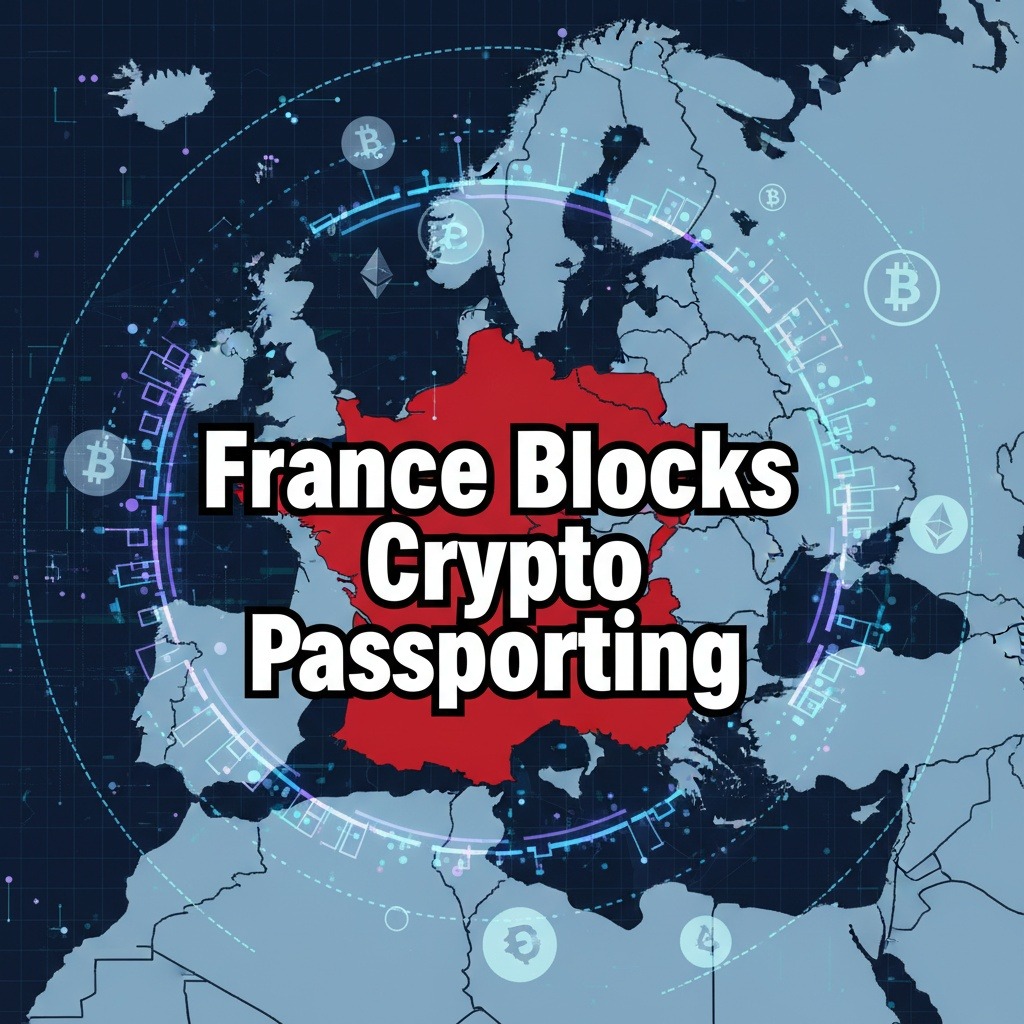In a significant development for the cryptocurrency landscape, France’s regulatory body, the Autorité des Marchés Financiers (AMF), has expressed intentions to potentially obstruct cryptocurrency companies from operating in the country if they are registered under licenses granted by other European Union (EU) member states. This move raises profound questions about the enforcement and interpretation of the EU’s newly established Markets in Crypto-Assets Regulation (MiCA).
According to a report by Reuters, the AMF’s current deliberations are driven by concerns that some crypto entities are acquiring licenses from EU countries with less stringent regulations. This situation underscores a fundamental challenge that MiCA was designed to address: the avoidance of regulatory arbitrage across the EU’s diverse regulatory environment.
Since MiCA’s introduction, which aimed to create a unified regulatory framework for crypto-asset service providers, France’s recent stance serves as a critical test of the legislation’s effectiveness. Marina Markezic, the executive director of the European Crypto Initiative (EUCI), commented, “MiCA was intended to establish a harmonized framework and allow firms to access a unified regulated market throughout the EU. This recent pressure on the framework questions the integrity of that promise.”
As part of this evolving scenario, recent position papers indicate an increase in tensions among EU member states regarding the application of MiCA, with various national authorities interpreting key elements of the law differently. Alongside France, Austria and Italy have also proposed that the European Securities and Markets Authority (ESMA) assume supervisory responsibilities for significant crypto enterprises.
Markezic notes that some proposed changes to MiCA would necessitate legislative amendments, reopening political discussions that could introduce new uncertainties for the crypto sector. However, legal experts are divided on the feasibility of France’s proposed restrictions. Edwin Mata, a lawyer and CEO of asset tokenization platform Brickken, argues that the AMF’s anticipated actions would lack legal grounding under the MiCA framework. He asserts, “The AMF does not hold the authority to prevent a MiCA-compliant entity from conducting business in France. MiCA operates as a regulation and applies directly across all member states.”
According to Mata, while the AMF retains the ability to monitor activities and raise concerns over compliance issues, it lacks the power to impose unilateral barriers on companies that have adhered to MiCA regulations established in other EU jurisdictions. His statement highlights the nuanced nature of MiCA and the necessity for regulatory harmonization among nations.
The AMF appears to be signaling a vigilant approach toward crypto firms operating under MiCA, aiming to ensure that entities are not improperly categorizing products that should fall under the existing Markets in Financial Instruments Directive II (MiFID II) regulatory framework for securities. This scrutiny illustrates the ongoing struggle regulators face in classifying financial instruments within an ever-evolving digital economy.
As the dialogue regarding crypto regulation continues to develop, the tensions between national approaches and EU-level frameworks will be closely monitored. Stakeholders in the cryptocurrency space are advised to stay alert to further regulatory updates, as the pursuit of a cohesive regulatory environment remains a complex task.



